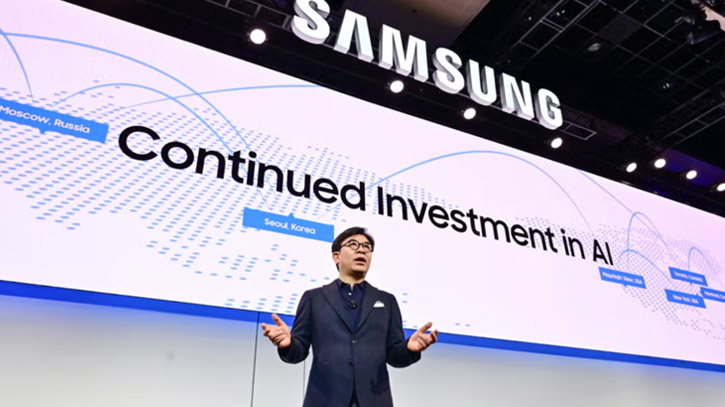
HS Kim, head of Samsung Electronics’ consumer electronics division, talking at a press conference. Photo : Samsung.
Samsung Electronics is shifting away from fossil fuels and aiming to entirely power its global operations with clean electricity by 2050, a challenging goal that experts say could be hampered by South Korea's modest climate change commitments.
South Korea-based Samsung is a top producer of computer memory chips and smartphones and, by some estimates, the biggest energy consumer among hundreds of global companies that have joined the "RE100" campaign to get 100% of electricity from renewable sources like wind or solar power.
In announcing its target Thursday the company said it aims to achieve net zero carbon emissions across its mobile device, display panel and consumer electronics divisions by 2030, and across all global operations including semiconductors by 2050.
It plans to invest 7 trillion won ($5 billion) through 2030 on projects aimed at reducing emissions from process gases, controlling and recycling electronic waste, conserving water and minimizing pollutants. It plans to develop new technologies to reduce power consumption in consumer electronics devices and data centers, which would require more efficient memory chips. It also will set long-term goals to reduce emissions in supply chains and logistics.
"Samsung is responding to the threats of climate change with a comprehensive plan that includes reducing emissions, new sustainability practices and the development of innovative technologies and products that are better for our planet," Jong-Hee Han, the company's CEO, said in an emailed statement.
Samsung's plan drew praise from some of its investors, including Dutch pension fund manager APG, which said the company could potentially make a "significant contribution" in cleaning up South Korea's electricity market, considering its impact and influence on the national economy.
END/TDM/EHM










